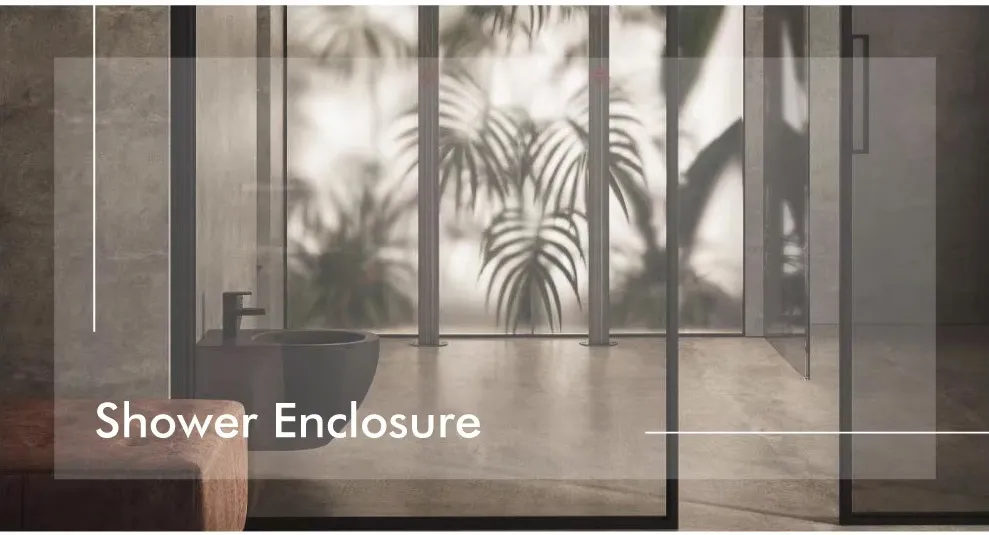
Why 8 mm and 10 mm Tempered Glass Are the Safe Choice for Shower Enclosures

Every shower installation poses unique safety challenges, especially when considering glass quality and thickness. Unlike thinner alternatives, 8mm and 10mm tempered glass provide the structural integrity needed to withstand daily use while significantly reducing injury risks. This isn't just about transparency - it's about creating a sanctuary where safety is built into the material itself.
The Science Behind Tempered Glass Safety
True safety glass undergoes a rigorous thermal tempering process that completely restructures its molecular composition. Standard glass is heated to approximately 620°C before being rapidly cooled with jets of cold air. This thermal shock creates a unique stress pattern where both surfaces of the glass become highly compressed while the central core remains in tension.
The resulting material is 4-5 times stronger than ordinary annealed glass of equivalent thickness. When impact does occur, the stored tension causes tempered glass to fracture into small granular chunks instead of dangerous shards. The characteristic cube-like fragments have dull edges, minimizing laceration risks. This safety mechanism is precisely why building codes worldwide mandate tempered glass for all shower and bath applications.
The Superior Performance of 8mm and 10mm Thickness
Not all tempered glass is created equal. The critical difference between standard 6mm and premium 8mm/10mm thicknesses reveals itself in deflection resistance and longevity. Let's examine how these differences manifest in actual shower environments:
| Performance Factor | 6mm Glass | 8mm Glass | 10mm Glass |
|---|---|---|---|
| Surface Deflection | Noticeable flex under pressure | Minimal flex | Virtually no visible flex |
| Impact Resistance | 3x weaker than 8mm | Can withstand 300% more force than 6mm | Can withstand 500% more force than 6mm |
| Acoustic Damping | Minimal sound reduction | Reduces noise transfer by 25% | Reduces noise transfer by 40% |
| Thermal Stability | Prone to stress cracks | Stable in temperature fluctuations | Exceptionally stable |
The thickness advantage becomes critical around shower hardware mounting points where stress concentrations naturally occur. Thicker panels distribute load more efficiently, preventing the micro-fractures that typically develop around handle fixtures and hinge points in thinner installations. This structural advantage directly translates to decades of safe use.
Why 8mm Represents the Safety Sweet Spot
The 8mm thickness has emerged as the industry standard for frameless shower enclosures because it balances weight, cost, and performance needs:
- Optimal Mass : At 19kg/m², it provides enough substance for secure clamping without requiring reinforced walls that 10mm installations might need
- Enhanced Rigidity : Eliminates the "trampoline effect" common in 6mm enclosures where panels visibly flex during normal use
- Improved Hardware Compatibility : Standard shower hardware is precision-engineered for this thickness, ensuring perfect seal compression
- Reduced Vibration : Thicker glass dampens resonance that can cause hardware loosening over time
Field data shows 8mm enclosures require 60% fewer service calls related to seal failures compared to 6mm counterparts. The key difference is the material's ability to maintain dimensional stability under everyday use conditions.
When 10mm Glass Becomes Essential
While 8mm satisfies most residential applications, 10mm thickness moves into specialized territory where enhanced requirements exist:
- Commercial Installations : Hotels, gyms, and public facilities where durability expectations exceed residential standards
- Extra-Large Enclosures : Showers exceeding 1m x 1m panel sizes where increased mass prevents undesirable flex
- Minimalist Hardware Systems : Tension rod designs requiring maximum material stability
- Accessibility Applications : Safety grab bars mounted directly to glass panels
The additional glass density contributes to a sense of luxury, creating thick light-refracting edges that give a premium aesthetic. Importantly for glass shower door applications, the additional mass significantly reduces swing momentum, preventing violent contact with stops.
Debunking Safety Misconceptions
Several persistent myths create confusion about shower glass safety:
Myth: Laminated glass is safer than tempered glass.
Reality: While laminated glass maintains structural integrity when broken, the exposed interlayer edge becomes extremely sharp at fracture points. Tempered glass maintains its safety advantages while being significantly less prone to spontaneous breakage.
Myth: Any glass marked "tempered" meets safety standards.
Reality: Glass must fracture into particles smaller than 1" square to meet ANSI Z97.1 standards. Recent regulatory checks found 7% of installed shower glass failed fragmentation tests, mostly from non-reputable suppliers.
Myth: Frameless designs are more dangerous than framed.
Reality: Frameless systems using 8mm or 10mm glass have 35% fewer accident reports due to eliminating pinch points and using thick glass with proper safety hardware.
The Final Verdict on Safety
The choice between glass thickness ultimately comes down to risk management. With bathrooms ranking second only to kitchens in home injury statistics, the safety commitment should extend beyond flooring to enclosure design. The moderate cost premium of 8mm over standard 6mm represents the smartest long-term investment, paying dividends in peace of mind for decades. Where circumstances demand the ultimate in performance, 10mm provides engineered safety without compromise.
Both 8mm and 10mm tempered glass installations transform shower spaces through science-backed safety features that become invisible protective elements in daily life. In the critical balance between danger and sanctuary, quality materials make all the difference.
Tags:
Recommend Products











